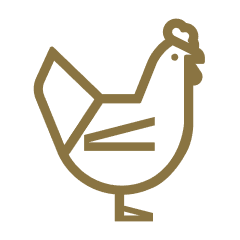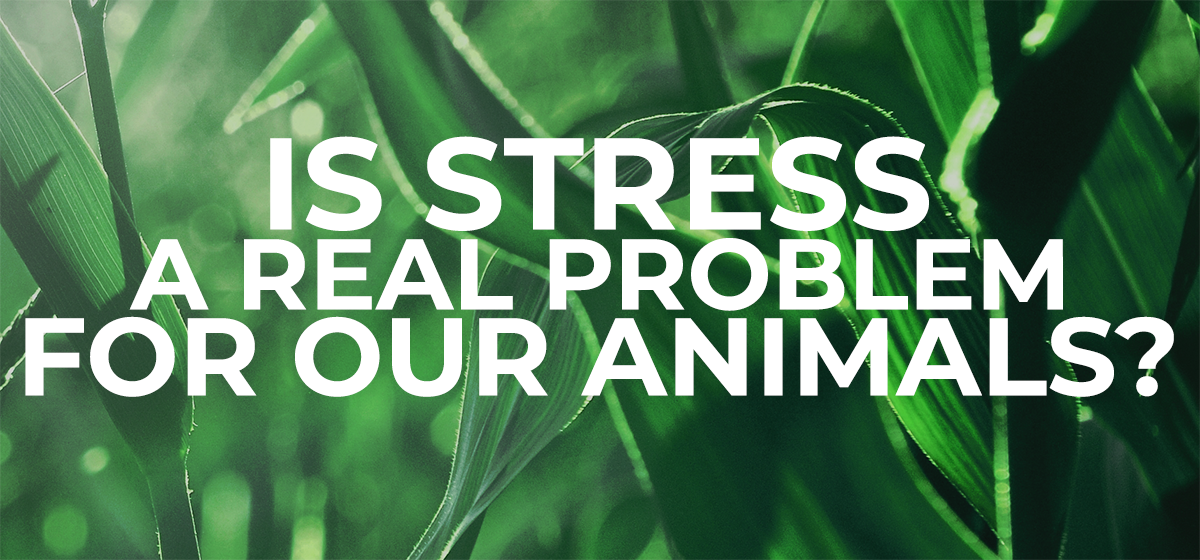What’s stress?
In our modern society the concept of stress is quite abused, but what do we mean talking about stressed animals? In this case, we refer to those subjected to external agents, the so-called stressors, that are of different nature and modify the physiological homeostasis of the organism. For sure pathogens, toxins and injuries are stressors, but also environmental conditions (i.e. high/low temperature, overcrowding or re-grouping) and physiological events (i.e. weaning and post-hatch period) have a negative impact on the animal.
What causes stress?
The common results of a stressful period are the reduction in live performance and a general lower resistance to pathologies. The background of these results includes different conditions, particularly related to the cortisol production, but also intestinal damages and mucosal impairment in all animal species. In case of inflammation of the mucosa, the tightness of the epithelium decreases and we can measure this impairment through ex vivo and in vitro tests, analyzing epithelial parameters (tight junctions proteins, permeability, trans-epithelial electrical resistance) and mucosal morphology.
Moeser et al. demonstrated that weaning in piglets causes the disruption of the tight junctions and the inflammation of the intestinal mucosa with loss of barrier function. At the same time, the age of weaning is really important to prevent these damages: as reported by Smith et al. the earlier is the weaning, the worse is the intestinal barrier function. This means that early weaned piglets are more susceptible to toxins and pathogens passage through the mucosa to the bloodstream and that the epithelial morphology is impaired (and probably not able to absorb nutrients correctly). Moreover, early weaned animals maintain the impairment of the intestinal mucosa for many weeks after weaning, resulting in lower gut health compared to the late weaned piglets.
Chicks do not experience weaning but an abrupt change occurs in their nutrition as the yolk is replaced by exogenous diet in the post-hatch. This change is comparable to the weaning as stressors of the intestinal mucosa that is absolutely immature at this stage of life. This is one of the reasons why the very first days of life are so delicate and loss in performance and pathologies can occur during this period more than later in the rearing cycle.
Real dangerous stressors in all animal species are high temperature and heat stress. Enterocytes are extremely susceptible to hypoxia and nutrient restriction. During heat stress periods, animals dissipate endogenous heat increasing the peripheral blood circulation, but doing this, they divert the blood flow far from viscera and cause intestinal hypoxia. The result is ATP depletion and oxidative and nitrosative stress increase in the intestinal epithelium, with disruption of tight junction integrity and mucosal morphology. Barrier function is lost and permeability to LPS increased, with a higher incidence of toxemia and lower dietary nutrient absorption. General consequences of this intestinal health impairment due to heat stress are, for example, lower ADG and feed efficiency in meat-producing animals, lower milk production for dairy ruminants, lower egg production and quality in laying hens.
The Vetagro solution
The AviPlus® product line is now available for poultry, swine, ruminants, and aquaculture. The specific combination of organic acids and nature identical compounds has proved anti-inflammatory action on the intestinal mucosa and increases the barrier function. Moreover, the synergistic antimicrobial activity of AviPlus® ingredients helps the animal against pathogens, reducing the risk of infections starting from the intestine.
References
-
- Moeser et al. (2007). Am J Physiol Gastrointest Liver Physiol 292:G173–G181
- Smith et al. (2010). Am J Physiol Gastrointest Liver Physiol. 298:G352-G363
- Geyra et al (2001). Poult. Sci. 80:776-782
- Mitjans et al. (1997). Cell Tissue Res. 290:71-78
- Kvidera et al. (2017). Vetagro International forum, Rome. Pp. 45-61









